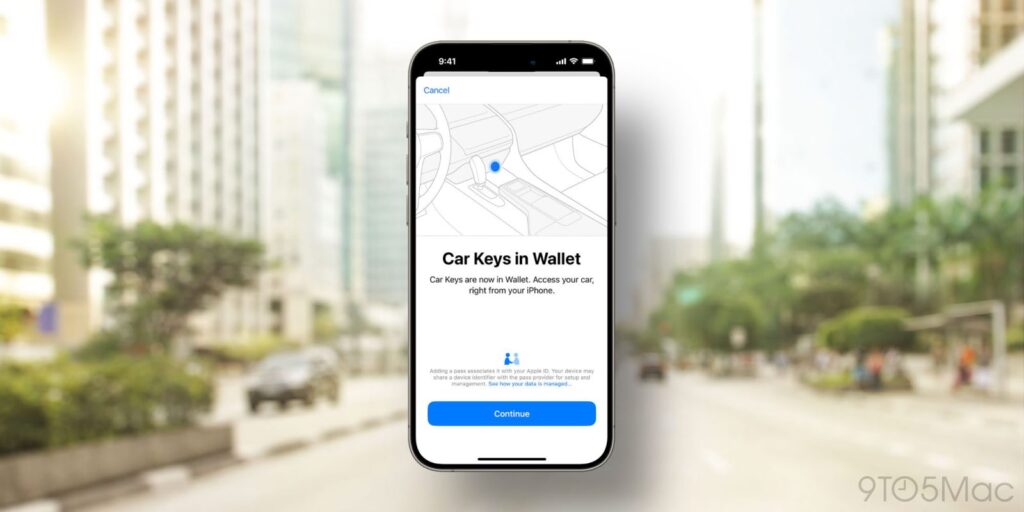
Apple’s Wallet app now supports a growing list of vehicles that allow users to control their cars using a digital car key. This feature, first unveiled at the WWDC 2020, enables users to add their car keys to the Wallet app on their iPhone or Apple Watch, granting them the ability to lock, unlock, and start their vehicles without traditional keys.
While adoption of this feature has been gradual, the list of car manufacturers that have integrated Apple’s car key system continues to expand. Users can take advantage of several functionalities, including the ability to use the car key without unlocking their devices or authenticating with Face ID, Touch ID, or a passcode through a feature known as Express Mode. Additionally, the Wallet app allows users to share their car keys via Messages, Mail, and AirDrop.
One of the remarkable aspects of this feature is that even if the iPhone battery dies, users can still access their car key for up to five hours. This capability offers a significant convenience for users who may find themselves in situations where their device runs out of power unexpectedly.
Current Vehicle Compatibility
As of now, the following automobile brands have confirmed support for Apple’s car key feature:
– Audi
– BMW
– BYD
– Genesis
– Hyundai
– Kia
– Lotus
– Mercedes-Benz
– MINI
– NIO
– RAM
– Polestar
– Rivian
– Volvo
With the announcement of new partnerships, the potential for further expansion appears promising. During the WWDC 2025, Apple hinted that several more manufacturers are set to join the initiative. General Motors (GM) has also indicated plans to introduce car key functionality in select models soon. Additionally, Chinese manufacturer Jetour is preparing to roll out support for Apple’s car key feature imminently.
Future Developments
While the current list of compatible vehicles is significant, industry observers anticipate that adoption will continue to grow as more automakers recognize the value of integrating Apple’s car key into their offerings. The evolving landscape of automotive technology suggests that more announcements from car manufacturers are likely in the near future.
For those who have experienced Apple’s car key feature, feedback has generally been positive, with many users appreciating the convenience and security it offers. As this technology develops, its impact on how consumers interact with their vehicles may become even more pronounced.
In conclusion, Apple’s car key feature represents a notable advancement in automotive technology, merging convenience with security. As more brands commit to this integration, it is clear that digital car keys are becoming a standard expectation for modern vehicles.







